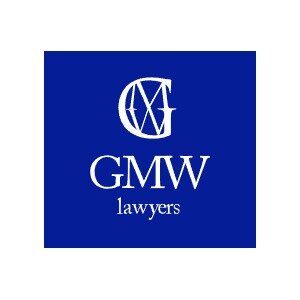Best Franchising Lawyers in Netherlands
Share your needs with us, get contacted by law firms.
Free. Takes 2 min.
Or refine your search by selecting a city:
List of the best lawyers in Netherlands
About Franchising Law in Netherlands
Franchising in the Netherlands is a popular and effective method for expanding business operations and distributing goods or services within a structured framework. It involves a franchisor granting a franchisee the rights to operate a business using the franchisor's trademark, brand, and business model, in exchange for fees and adherence to certain standards and practices. The Dutch Franchise Act, effective from 1 January 2021, governs franchise relationships and aims to establish a fair balance between franchisors and franchisees. The Act ensures transparency, cooperation, and good faith between parties, requiring clear pre-contract disclosure and dialogue throughout the partnership.
Why You May Need a Lawyer
There are several instances in which seeking legal advice in franchising might be necessary. Here are some common situations:
- Contract Negotiation: Understanding and negotiating franchise agreements can be complex. Legal assistance ensures your obligations and rights are clearly defined and fair.
- Compliance: Both franchisors and franchisees must comply with the Dutch Franchise Act, consumer protection laws, and other relevant regulations. A lawyer can help ensure compliance, avoiding potential legal issues.
- Dispute Resolution: Disagreements may arise over IP rights, fees, territory, and operational guidelines. A lawyer can provide guidance in resolving these disputes effectively.
- Termination: Legal advice is crucial when terminating a franchise agreement to address penalties, rights, and obligations.
- Expansion Planning: Franchisors expanding into the Dutch market need legal guidance on compliance and market entry strategies.
Local Laws Overview
Key aspects of franchising laws in the Netherlands include:
- Dutch Franchise Act: This legislation provides protection to franchisees by requiring the franchisor to disclose crucial information before entering into a franchise agreement. It includes details on initial fees, projected expenditures, intellectual property rights, and more.
- Pre-contractual Information Obligation: Franchisors must provide detailed and accurate information to the franchisee at least four weeks before signing the agreement, ensuring informed decision-making.
- Good Faith and Fair Dealing: The law enshrines principles of good faith and fair dealing, ensuring mutual respect and cooperation between franchise partners throughout the business relationship.
- Consultation Obligation: Franchisors are obliged to consult with franchisees on significant business changes, fostering a partnership approach.
Frequently Asked Questions
1. What is a franchise agreement?
A franchise agreement is a legally binding contract between a franchisor and franchisee, outlining the terms and conditions of the franchise relationship, including rights, obligations, fees, and operational guidelines.
2. Is franchising regulated in the Netherlands?
Yes, franchising is regulated by the Dutch Franchise Act, which mandates pre-contractual disclosure, principles of good faith, and fair dealing.
3. Can a franchisee terminate a franchise agreement?
Yes, a franchisee can terminate a franchise agreement, but it typically involves specific conditions and penalties as stipulated in the agreement. Legal advice is recommended for assessing termination options.
4. What pre-contractual information must a franchisor provide?
Franchisors must provide information about initial fees, intellectual property, financial performance expectations, and legal claims history, among other key details.
5. Do franchisors control the franchisee's business operations?
While the franchisor sets certain operational standards and guidelines, franchisees generally have control over day-to-day operations. The level of control should be specified in the franchise agreement.
6. How is a franchise agreement enforced?
Enforcement of franchise agreements involves addressing breaches through negotiations, mediation, or, if necessary, legal proceedings. Legal counsel can provide guidance during enforcement.
7. Can a franchisee negotiate the terms of a franchise agreement?
Yes, franchisees can and should negotiate terms to ensure they are fair and meet their business needs. Having a lawyer review the terms is advisable during negotiations.
8. What are the typical fees involved in a franchise agreement?
Fees often include an initial franchise fee, ongoing royalty payments, marketing contributions, and other operational costs. These fees should be clearly outlined in the agreement.
9. How long does a franchise agreement last?
The duration of a franchise agreement varies, typically ranging from 5 to 20 years, subject to renewal negotiations.
10. What disputes are common in franchising?
Common disputes include disagreements over territory rights, fees, operational support, and compliance with franchise standards. Legal assistance can be critical in resolving these issues.
Additional Resources
For further help and resources, consider contacting the following organizations and bodies:
- Netherlands Franchise Association (NFV): Offers guidance and support for franchisors and franchisees in the Netherlands.
- Chamber of Commerce (KvK): Provides information on starting and operating a franchise business.
- Dutch Bar Association: Helps in finding specialized franchise lawyers in the Netherlands.
- Ministry of Economic Affairs and Climate Policy: Offers resources and information on regulatory compliance and business operations.
Next Steps
If you need legal assistance in franchising, consider the following steps:
- Research and Identify: Determine the specific legal needs of your franchising situation.
- Consult Legal Professionals: Seek expert legal advice from lawyers specialized in Dutch franchising law.
- Prepare Documentation: Gather all relevant documents, including the franchise agreement and any correspondence, for review by legal counsel.
- Schedule a Consultation: Arrange a meeting with a legal expert to discuss your concerns and receive tailored advice.
- Engage in Dialogue: Maintain open communication with the other party in your franchise relationship to foster mutual understanding and cooperation.
Lawzana helps you find the best lawyers and law firms in Netherlands through a curated and pre-screened list of qualified legal professionals. Our platform offers rankings and detailed profiles of attorneys and law firms, allowing you to compare based on practice areas, including Franchising, experience, and client feedback.
Each profile includes a description of the firm's areas of practice, client reviews, team members and partners, year of establishment, spoken languages, office locations, contact information, social media presence, and any published articles or resources. Most firms on our platform speak English and are experienced in both local and international legal matters.
Get a quote from top-rated law firms in Netherlands — quickly, securely, and without unnecessary hassle.
Disclaimer:
The information provided on this page is for general informational purposes only and does not constitute legal advice. While we strive to ensure the accuracy and relevance of the content, legal information may change over time, and interpretations of the law can vary. You should always consult with a qualified legal professional for advice specific to your situation.
We disclaim all liability for actions taken or not taken based on the content of this page. If you believe any information is incorrect or outdated, please contact us, and we will review and update it where appropriate.
Browse franchising law firms by city in Netherlands
Refine your search by selecting a city.
















